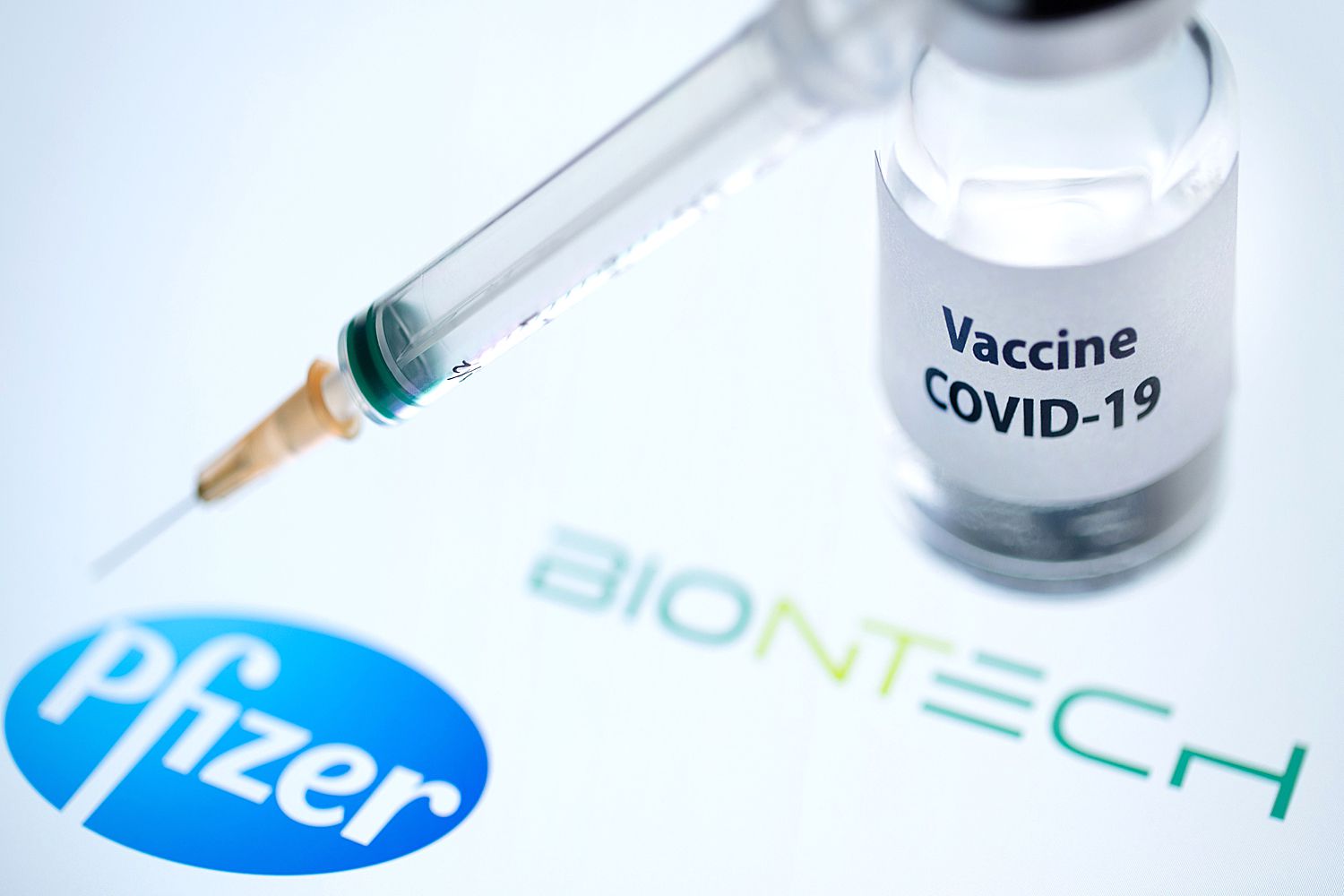You’ll Still Need to Wear a Mask After Getting a COVID Vaccine — Here's Why

The news surrounding COVID-19 vaccine developments has been better than expected, with products from Pfizer and Moderna found to be around 95 percent effective in preventing infection in clinical trials. The two vaccines are now headed towards emergency use approval from the Food and Drug Administration, and some Americans could get vaccinated as soon as Dec. 14.
And while the vaccines are a vital step toward ending the pandemic — and one that is desperately needed, with COVID-19 cases raging out of control in the U.S. — health experts are cautioning that safety precautions like social distancing and mask-wearing won't end just yet. And even those who receive a COVID-19 vaccine should continue wearing a mask for most of 2021.
“It’s not going to be a light switch” back to pre-pandemic life, Dr. Anthony Fauci, the director of the National Institute of Allergy and Infectious Diseases, said in November.
“Obviously, with a 90-plus percent effective vaccine, you could feel much more confident” about not getting the virus, he said. “But I would recommend to people to not abandon all public health measures just because you have been vaccinated.”
One reason masks should continue to be worn is that the vaccine rollout will take many months, with Americans getting vaccinated in phases over the course of 2021.
The first groups to get the vaccine will be frontline health care workers and the residents and staff of long-term care facilities. From there, the Centers for Disease Control is expected to advise that the next doses go to essential workers, such as emergency responders, grocery workers, public transit workers, teachers, correction officers and police officers.
Adults over 65 years old and those with preexisting conditions would likely go next. The remaining Americans likely won’t be vaccinated until late spring, and the staggered vaccine schedule will mean that those people need to keep their masks on.
Even as people start to get vaccinated, both Pfizer and Moderna’s versions require two shots to be fully effective. In clinical trials, Pfizer’s offers around 50 percent protection after the first dose, and the second, which is given three weeks later, brings it up to 95 percent effectiveness. With Americans on widely different vaccine schedules and doses, they will still need masks to protect themselves from infection.
"Until you get that second dose, you shouldn't consider yourself protected,” Dr. David Dowdy, an epidemiologist and associate professor at the Johns Hopkins Bloomberg School of Public Health, told Today.
Then there’s the lingering question of whether vaccinated people can carry the virus without getting sick, but still transmit it — similar to asymptomatic cases.
Respiratory infections, including COVID-19, typically produce antibodies that will immediately shut down the virus from infecting a person again. Vaccines, on the other hand, are injected into the body and then work to create antibodies, so there can sometimes be a delay between immunization and when the antibodies become effective in fighting the virus.
That gap means there's a period when a person with the vaccine could become infected, or could take in the virus and pass it to others.
“It’s a race: It depends whether the virus can replicate faster, or the immune system can control it faster,” Dr. Marion Pepper, an immunologist at the University of Washington, told The New York Times. “It’s a really important question.”
And the other issue is that the vaccine is not 100 percent effective — Pfizer’s vaccine has around 5 percent “potential for infection,” Dowdy said. While that margin is small, COVID-19 is currently uncontrolled in most of the country, and Americans are at an extremely high risk of getting the virus in their daily lives.
Fauci said that he expects most Americans will be vaccinated by the end of spring or summer, and the number of new infections will start to go down. But “we are not going to turn [the pandemic] on and off, going from where we are to completely normal. It’s going to be a gradual accrual of more normality as the weeks and the months go by, as we get well into 2021,” he said.
As information about the coronavirus pandemic rapidly changes, PEOPLE is committed to providing the most recent data in our coverage. Some of the information in this story may have changed after publication. For the latest on COVID-19, readers are encouraged to use online resources from the WHO and local public health departments. PEOPLE has partnered with GoFundMe to raise money for the COVID-19 Relief Fund, a GoFundMe.org fundraiser to support everything from frontline responders to families in need, as well as organizations helping communities. For more information or to donate, click here.
Source: Read Full Article
